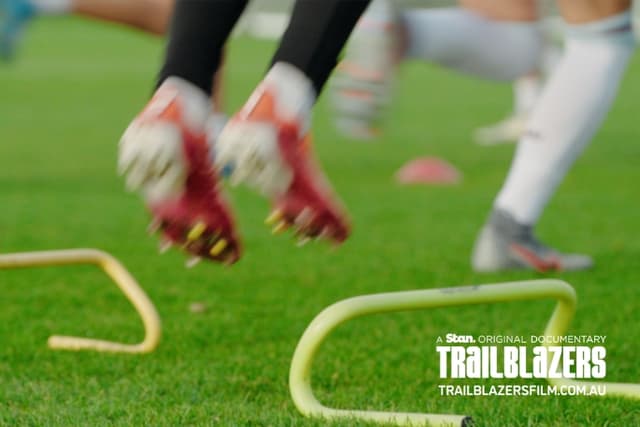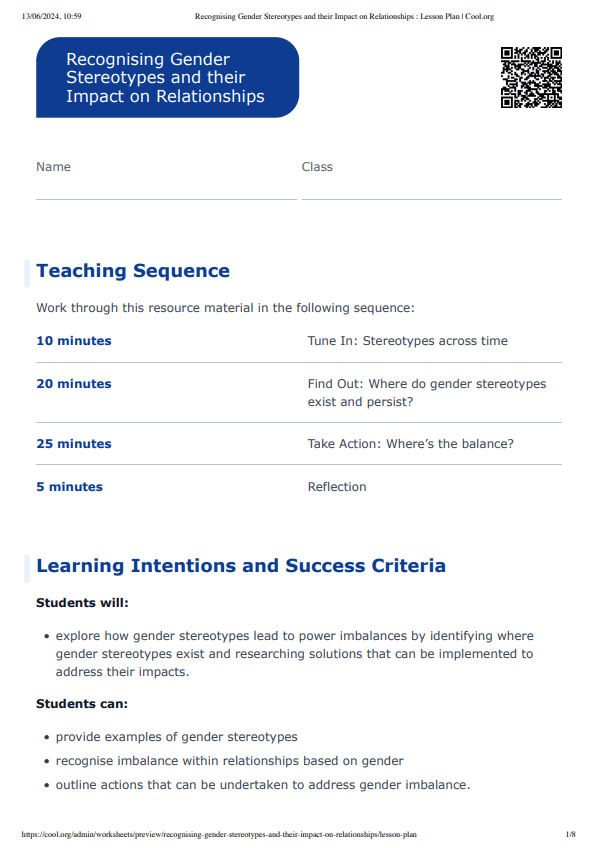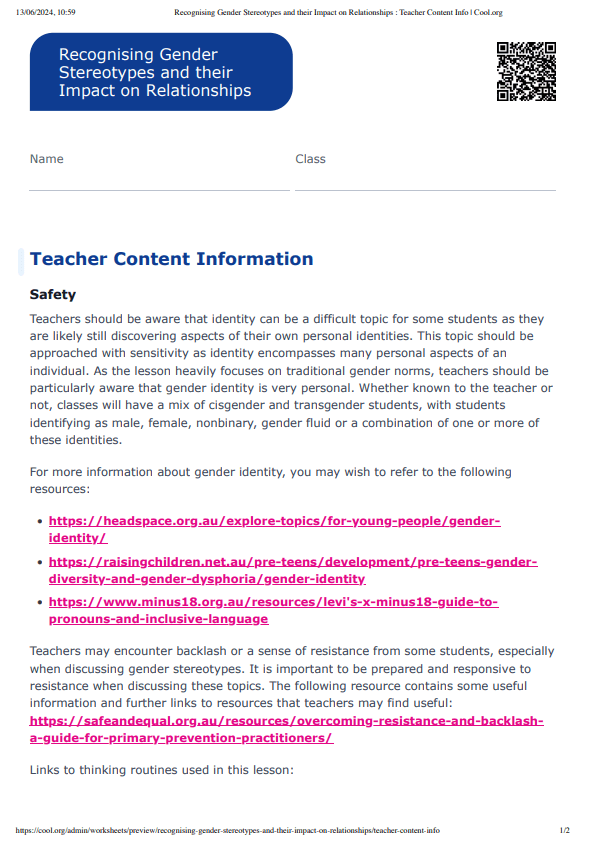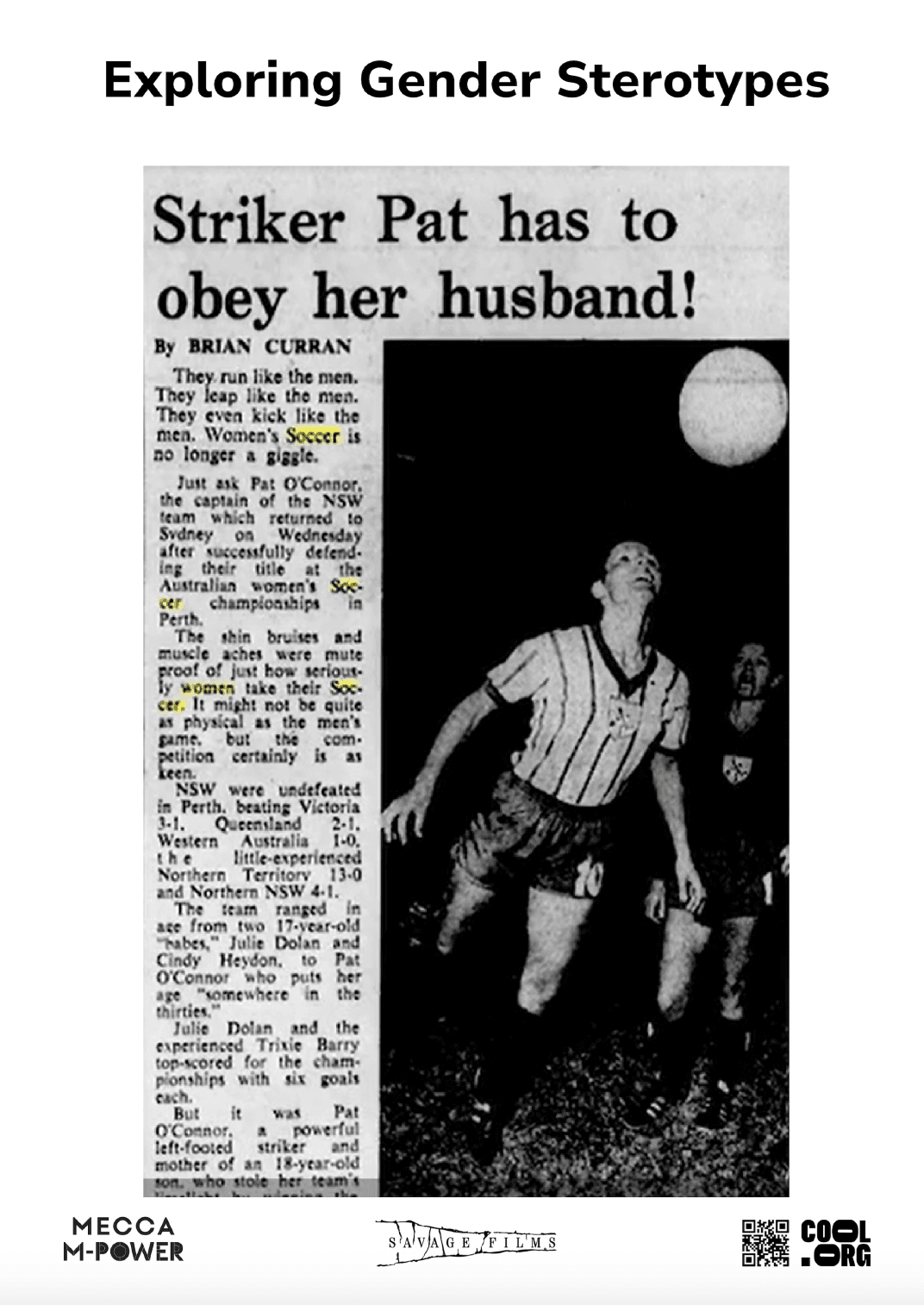Learning intentions:
Students will...
- explore how gender stereotypes lead to power imbalances by identifying where gender stereotypes exist and researching solutions that can be implemented to address their impacts.
Success criteria:
Students can...
- provide examples of gender stereotypes
- recognise imbalance within relationships based on gender
- outline actions that can be undertaken to address gender imbalance.



